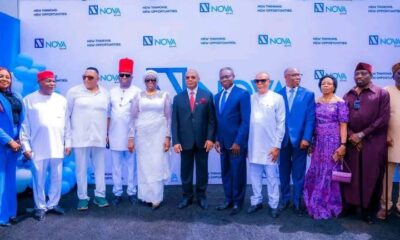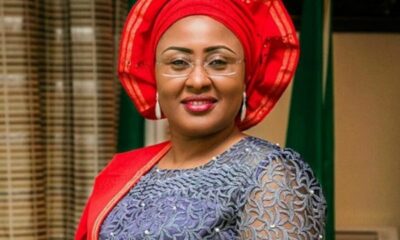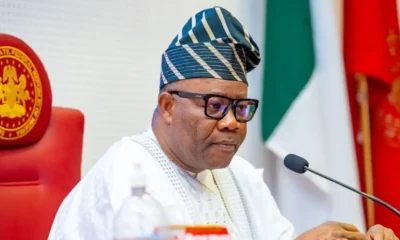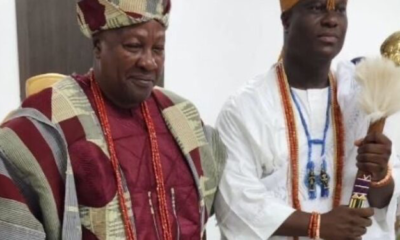Politics
Labour leader, Peter Obi visited Atiku Abubakar of PDP at his house. What do you think they discussed?
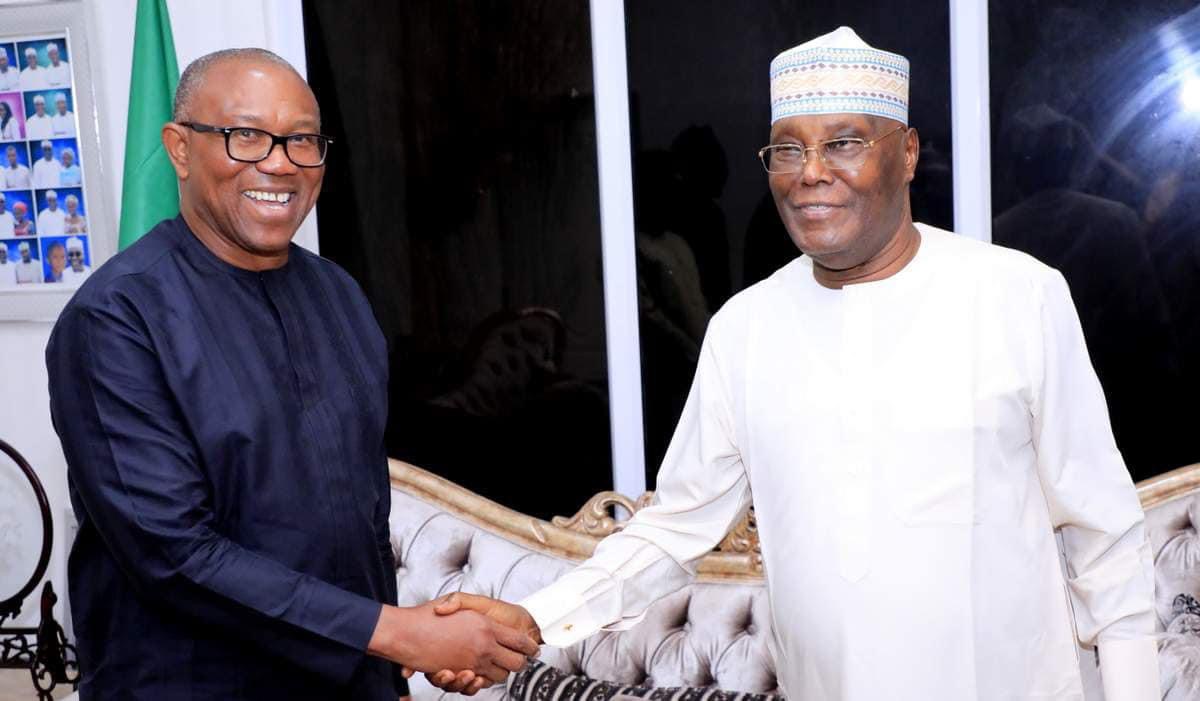
The details of the meeting between Peter Obi and Atiku Abubakar have emerged ¹. They discussed issues affecting Nigeria and how to rescue the country. However, there are speculations that the meeting might be connected to the 2027 election. The meeting could have been about the following ² ³:
– *Zoning of the presidential ticket*: Atiku Abubakar wanted the PDP to zone the 2023 presidential ticket to the Southeast, but Nyesom Wike worked against it.
– *Peter Obi’s departure from PDP*: Wike played a significant role in Obi’s departure from the PDP.
– *Atiku’s willingness to step aside*: Atiku was willing to forego his presidential aspiration if the presidency was micro-zoned to the southeast region, where Obi hails from.
– *Wike’s counter-proposal*: Wike countered Atiku’s condition and promoted that the ticket be thrown open to the three sub-regions in the south (southeast, southwest, and south-south).
EVENTS
PRESIDENT TINUBU CONGRATULATES SENATOR IFEANYI ARARUME ON HIS BIRTHDAY
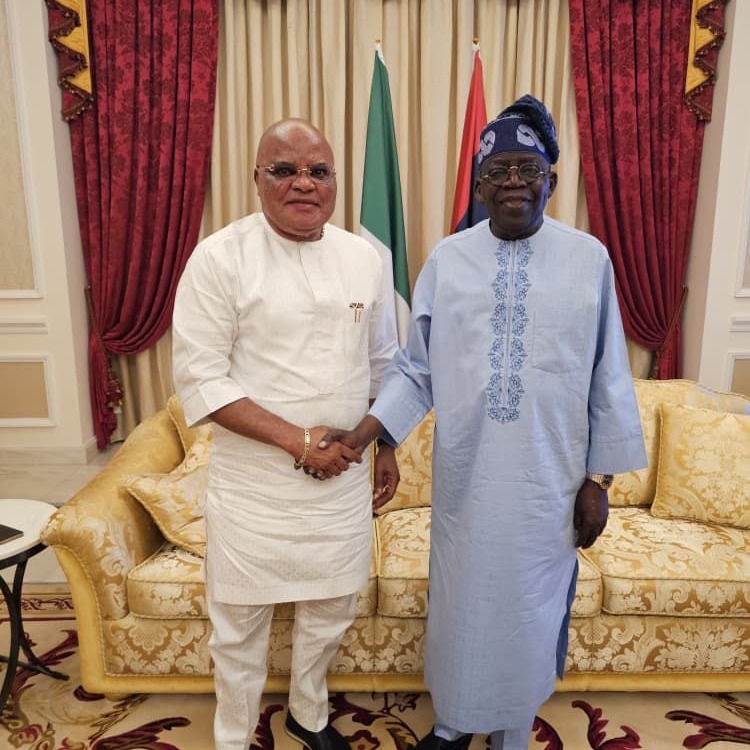
President Bola Tinubu felicitates Senator Ifeanyi Godwin Ararume, astute politician and accomplished businessman, on his birthday, December 16.
Senator Ararume’s odyssey in politics began in the late 1980s, when he served as the State Treasurer of the Liberal Convention in old Imo State. He later joined the National Finance Committee of the defunct National Republican Convention.
He represented Imo North in the 9th National Assembly. He was first elected in May 1999 and re-elected in April 2003. He also served on several committees and held other official roles.
President Tinubu commends the former senator for his years of service to the nation and contributions to its peace, unity, and progress.
The President describes Senator Ararume as a resolute and shrewd politician, highlighting his courageous and remarkable political journey through the years.
President Tinubu wishes Senator Ararume a happy 67th birthday and prays that God Almighty will grant him more years of good health and strength.
Politics
Ndigbo are no longer spectators in the Nigerian project- Minister Dave Umahi dismisses calls for Biafra under Tinubu’s administration
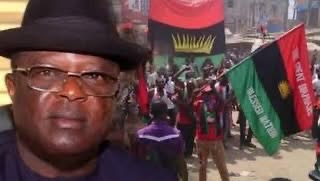
The Minister of Works, David Umahi, says the all-inclusive style of governance being practiced by President Bola Tinubu has made the agitation for Biafra an unnecessary clamour.
While speaking at the inspection of the Enugu-Anambra road last Saturday, December 13, Umahi said the Tinubu administration had given Ndigbo what they had sought for decades, not through secession, but through what he described as unprecedented inclusion in national governance and development.
He explained that the agitation for Biafra was historically driven by neglect, exclusion and underrepresentation at the federal level, but insisted that the situation had changed under the current administration.
“When a people are fully integrated, respected and empowered within the structure of the nation, the dream they once chased through agitation has already been achieved through cooperation.
The push for Biafran secession over the years was borne out of neglect, exclusion and underrepresentation but today the narrative has changed dramatically under President Bola Tinubu.
The President has deliberately opened the doors of national development to the South-East. Appointments, policy inputs and infrastructure priorities now reflect true federal balance.
Every sector now bears visible Igbo footprints. The emergence of Igbo sons and daughters in strategic positions is a testament to this inclusion.
Biafra was never about breaking Nigeria; it was about being counted in Nigeria. Through inclusion, equity and concrete development, Ndigbo are no longer spectators in the Nigerian project; they are co-authors of its future. When justice finds a people, agitation loses its voice.”he said
Politics
ADC Launches 90-Day Membership Drive, Fixes Dates For Congresses, National Convention
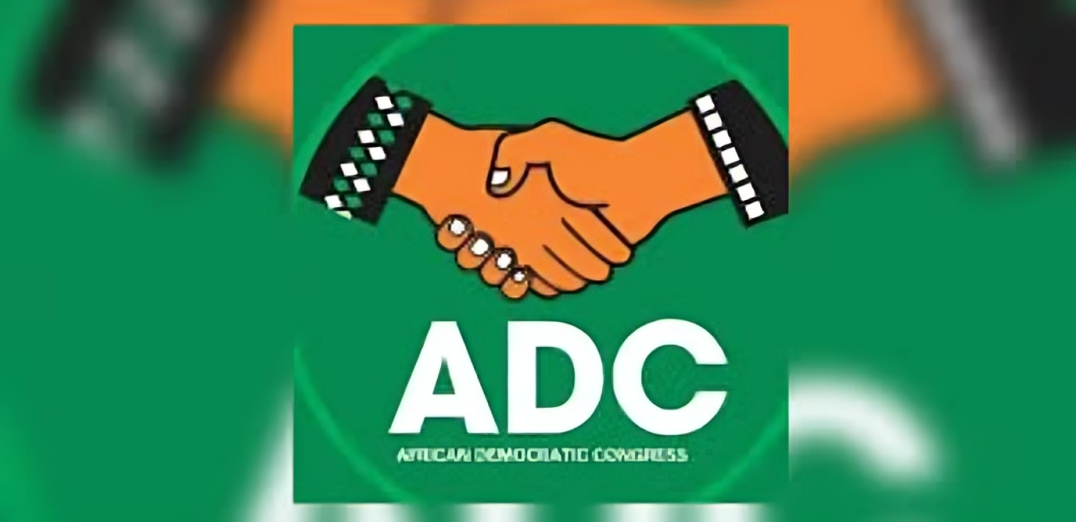
The African Democratic Congress (ADC) has announced a 90-day nationwide membership mobilisation, revalidation, and registration exercise as part of preparations for its internal party activities ahead of 2026.
The party also approved provisional dates for its congresses and the election of delegates at the polling unit, ward, and local government levels across the country.
In circulars issued by its national secretary, Rauf Aregbesola, the ADC said the congresses are expected to hold between January 20 and January 27, 2026.
The process, the party said, will lead to the emergence of delegates who will participate in its non-elective national convention scheduled for February 2026 in Abuja.
A statement by Bolaji Abdullahi, national publicity secretary of the party, said the decisions were reached at a meeting of the national working committee (NWC) held on November 27, 2025.
Abdullahi said the timetable and activities were approved in line with the resolutions of the NWC and in accordance with relevant provisions of the party’s constitution.
The ADC said further details on the membership exercise, congresses, and convention will be communicated to party members and stakeholders in due course.
-
Business1 year ago
US court acquits Air Peace boss, slams Mayfield $4000 fine
-

 Trending1 year ago
Trending1 year agoNYA demands release of ‘abducted’ Imo chairman, preaches good governance
-

 Politics1 year ago
Politics1 year agoMexico’s new president causes concern just weeks before the US elections
-

 Politics1 year ago
Politics1 year agoPutin invites 20 world leaders
-

 Politics1 year ago
Politics1 year agoRussia bans imports of agro-products from Kazakhstan after refusal to join BRICS
-
Entertainment1 year ago
Bobrisky falls ill in police custody, rushed to hospital
-
Entertainment1 year ago
Bobrisky transferred from Immigration to FCID, spends night behind bars
-
Education1 year ago
GOVERNOR FUBARA APPOINTS COUNCIL MEMBERS FOR KEN SARO-WIWA POLYTECHNIC BORI

